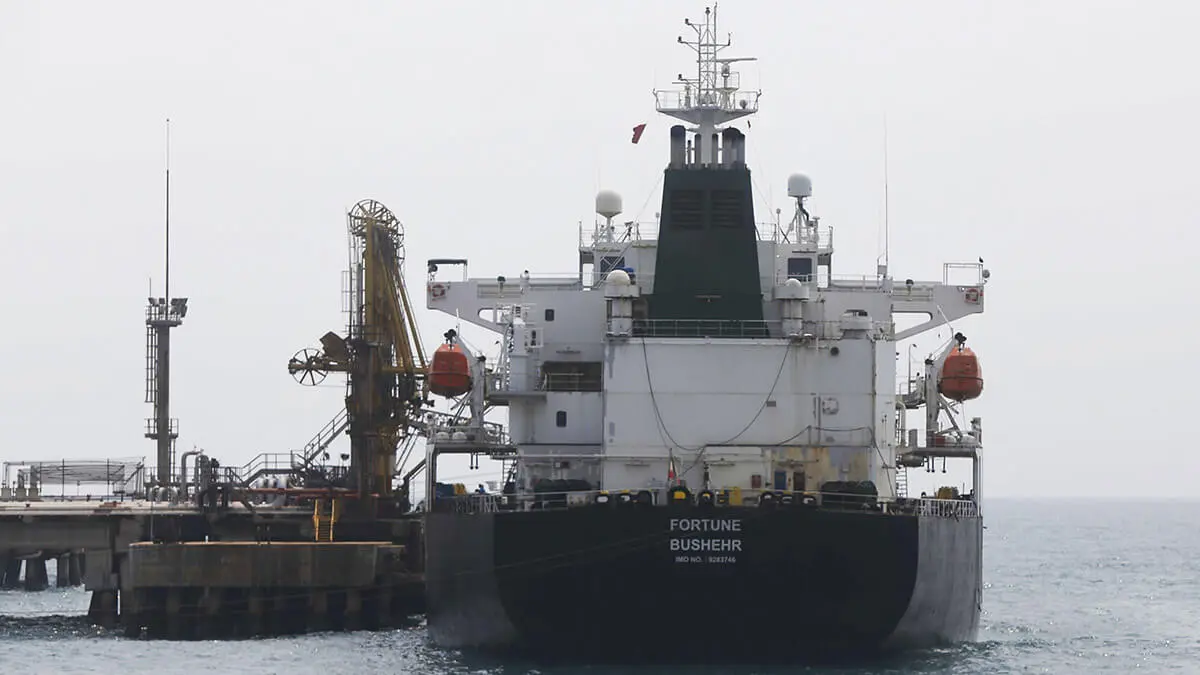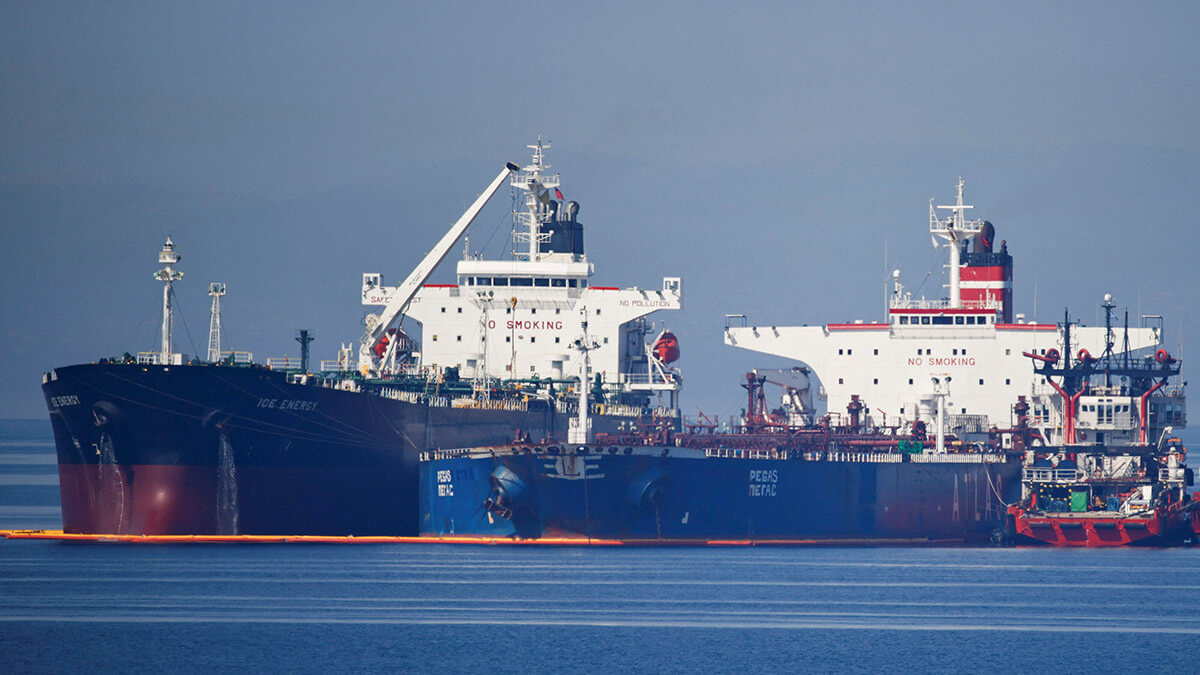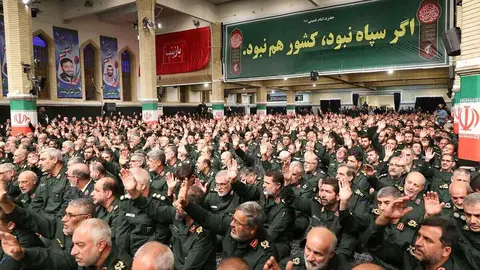Iran violated international sanctions and traded its oil since 2022

Iran has already accumulated 19 years of sanctions. As a result, Tehran has developed the world's largest illegal fossil fuel transportation network. According to a recent study, Iran's oil has been transported since March 2022, despite sanctions imposed by the international community.
Falsification of documents
By concealing and falsifying documents, sending encrypted emails and irregular payments to the captains of these ships, the Iranian executive has managed to transport more than 20 million barrels of oil in the last two years, or more than 1.7 billion dollars.
The investigations began after the discovery of the double identity of the Panama-flagged tanker Remy, which was loaded with more than a million barrels of oil, allegedly from Iraq, bound for Malaysia.

This arrest was made in February 2023 thanks to European Space Agency satellites, although it was later revealed that this practice had been going on since at least March 2022 thanks to a computer attack by Prana Network against the Iranian regime that uncovered more than 10,000 emails related to illegal oil trafficking.
According to Esfandyar Batmanglij, executive director of Purse & Bazaar, one of the London-based researchers and experts tracking the Iranian oil business, ‘there are shadowy networks involved in a very lucrative trade, and now US officials are forced to make haphazard and futile efforts to try to control the situation.’
Enquiries suggested that the company, operating as a front, Deep Ocean, was endorsed by the National Iranian Oil Company. However, it later emerged that it was in fact the Tehran-based Iranian company Sahara Thunder that was financing the sanctioned crude oil transport operations.
Iran's methods have been carefully guarded, but the leaked emails revealed unusually precise details about the day-to-day operations of Sahara Thunder that helped keep Iran's multi-billion-dollar oil industry going.
📍Reuters mapped the key locations where tankers used by Iranian company Sahara Thunder transferred oil, from Iran and the United Arab Emirates, to Venezuela, northern Russia and a string of ports in China 2/7 pic.twitter.com/8T6q8BR5uv
— Reuters (@Reuters) January 7, 2025
Tightening sanctions
In response to this finding, the White House tightened sanctions against Iran and placed the Iranian company on the list of companies linked to oil smuggling. In total, the US government has sanctioned 21 ships, although it is estimated that there are at least 13 other vessels that are still not subject to the sanctions.
Following the discovery, investigations pointed to the Iraqi Oil Marketing Company (SOMO), which, from the outset, made it clear that ‘they were not aware that any of their ships were loaded with Iranian oil.’ This was because some of the captains of the SOMO fleet of ships were being bribed so that Iran could keep its business, and thus its economy, afloat. As far as is known, this happened with a total of 18 shipments between March 2022 and April 2024, the month in which the US began to consider Sahara Thunder as a ‘company sponsoring the ayatollahs’ regime’.
Some of these ships, in addition to the Remy, which made more than 60 voyages and shipped more than 6.7 million barrels of oil, were: the Yau, which transported oil to Southeast Asia; the Dion, which participated in 33 ship-to-ship transfers to 11 different vessels, with a total of five million barrels of oil; or the Won (or Wen Yao), which made a single voyage with 1.9 million barrels of oil bound for China. In fact, most of the oil transported by Sahara Thunder ended up in China.
Russia and Venezuela involved
Most of the oil transported by Sahara Thunder was Iranian. But the company was also contracted to help deliver oil from other allied countries, such as Russia and Venezuela, which are also forced to operate illegally, cut off from Western banks, insurance companies and buyers, as shown by emails in which Sahara Thunder network ships, such as the Remi and the Wen Yao, are known to have transported oil from two state-owned companies in Russia and Venezuela.

One of the examples was the shipment of 1.05 million barrels of oil by the Remy ship at Christmas 2023 from the port of Novi from the Russian ship Omba in Murmansk. The messages show that the oil was being shipped to Gazprom Neft, Russia's third largest oil producer, and whose buyer was China Oil Hong Kong Limited, a subsidiary of the state-owned giant China National Petroleum Corporation, Asia's largest producer.
The results of this investigation highlight that the sanctions imposed by the US, EU and UK against Iran, Russia and Venezuela are not achieving the objective of preventing these countries from trading their oil.










